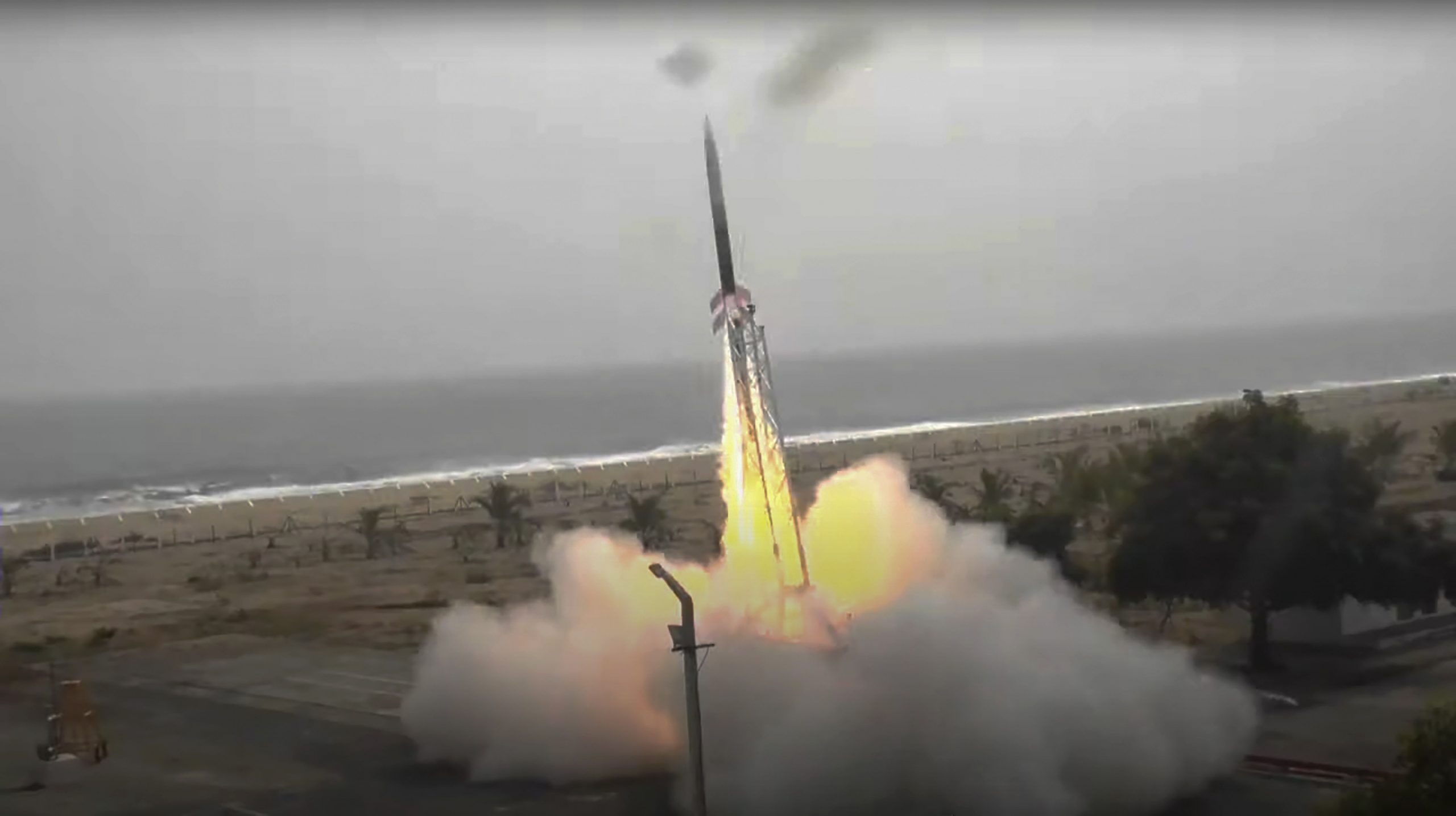Indian Space Research Organisation (ISRO) has launched India’s first privately built rocket today. Vikram-S blasted off on its maiden flight from the ISRO’s Satish Dhawan Space Centre of ISRO in Sriharikota at 11.30 am on November 18, 2022.
Named as a tribute to the father of India’s space program Vikram Sarabhai, the rocket is a part of the mission called ‘Prarambh’. Mission Prarambh was launched by ISRO’s chairman S Somnath earlier this month. The launch was authorized by India’s space regulator IN-SPACe.
Also Read | Vikram-S, India’s 1st privately made rocket, launches, Prarambh Skyroot Mission underway: Watch
The rocket has been developed by Hyderabad-based Skyroot Aerospace, a company that was founded by Pawan Kumar Chandana and Naga Bharath Daka in 2018. The rocket carried two domestic payloads built by Space Kidz India and N-Space Tech India and one foreign payload from Bazoomq of India.
The company is building three Vikram rockets that will use various solid and cryogenic fuels. The Vikram series of rockets are among the few launch vehicles that have their core structure built using carbon composites. The thrusters used for spin stability in the vehicle are 3D printed.
Also Read | SpaceX violated labour laws: Fired employees complain to National Labor Relations Board
Pawan K Chandana, co-founder of Skyroot Aerospace said, “After months of sleepless nights and meticulous preparations from our team — super thrilled to announce our first launch mission #Prarambh from the beautiful island of Sriharikota.” Skyroot has become the first company to foray into the country’s space segment after it was opened for private players in June 2020.
Also Read | NASA shuttle debris found at the bottom of Atlantic, 37 years after crash
The engine used in the launch vehicle ‘Kalam-80’ is named after former Indian president Dr. APJ Abdul Kalam. The engine’s performance will be one of the crucial areas that the company will monitor during the flight of Vikram-S.
Skyroot also plans to launch 20,000 small satellites in the coming decade, and the leading technology architecture of Vikram vehicles offers capabilities like multi-orbit insertion, and interplanetary missions while providing customised, dedicated, and ride-share options covering a wide spectrum of small satellite customer needs.
Also Read | Meet Gaia BH1, the closest-known Black Hole from Earth
This launch will help in the validation of many technologies for Skyroot Aerospace’s other launch vehicles in the Vikram series, such as Vikram I/II/III. This will also play an important role in determining when Vikram I will launch next year.







